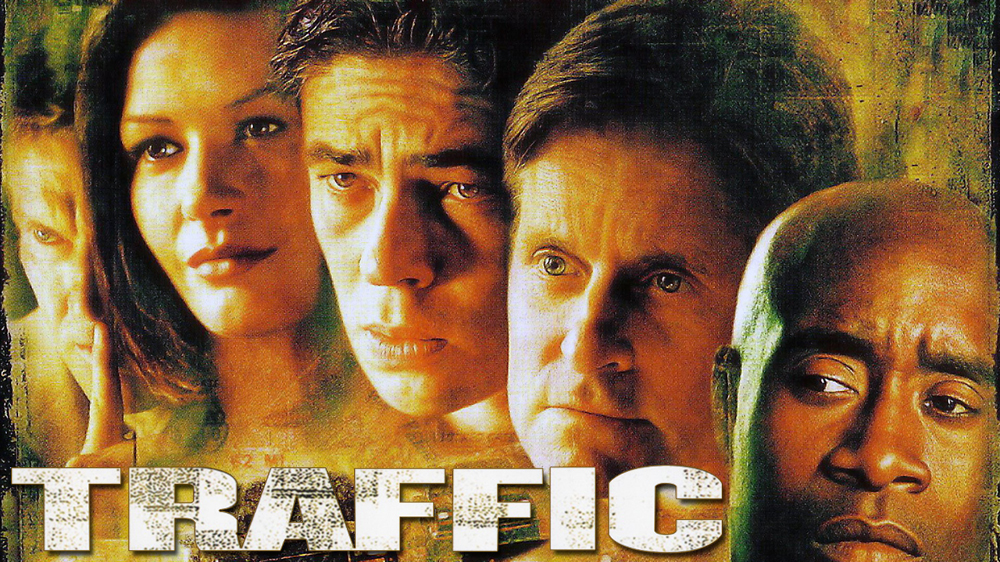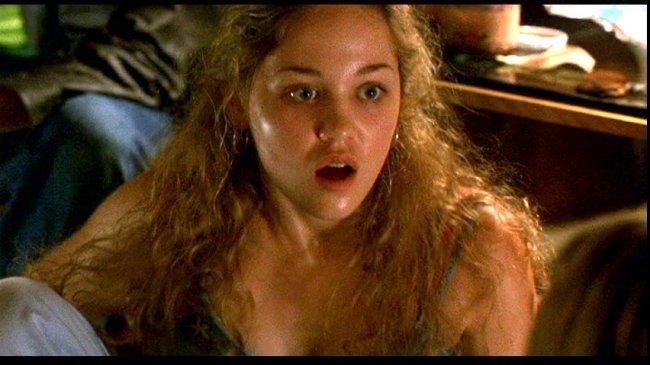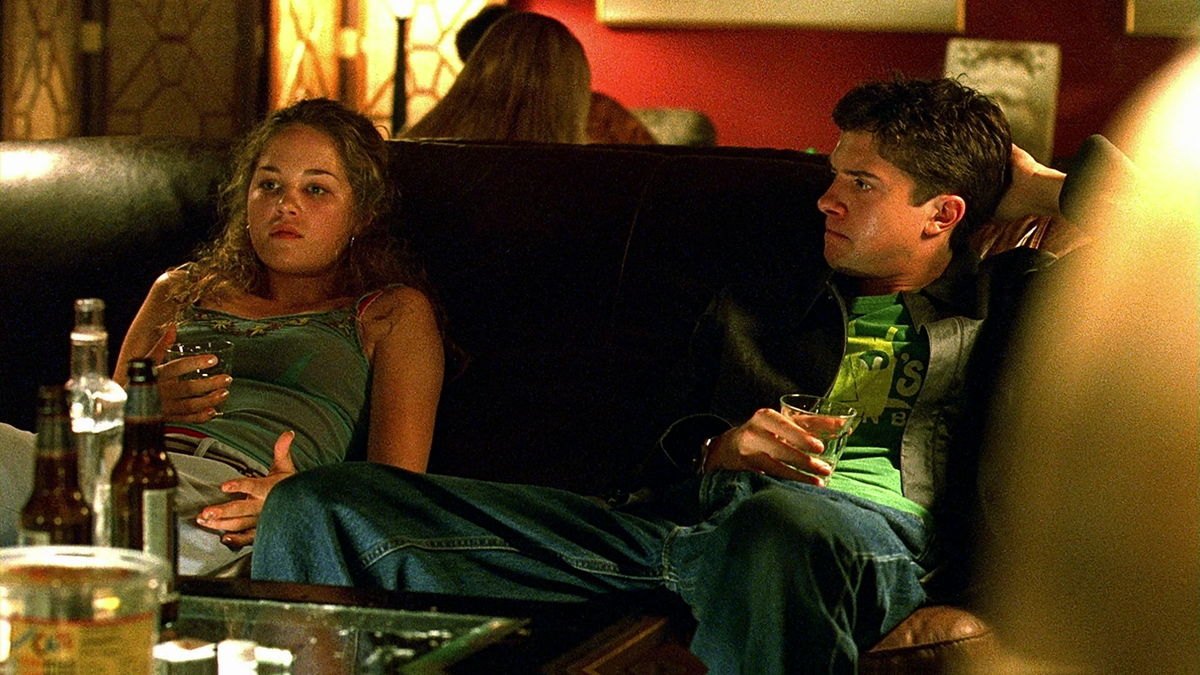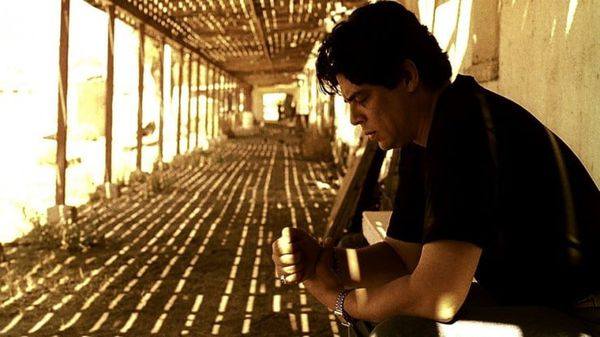Traffic (2000)

“Traffic” (2000) is a critically acclaimed American crime drama film directed by Steven Soderbergh and written by Stephen Gaghan. The film explores the complex and multifaceted world of illegal drug trafficking from various perspectives, including that of users, law enforcement officers, politicians, and drug dealers. Featuring an ensemble cast that includes Michael Douglas, Benicio del Toro, Catherine Zeta-Jones, and Don Cheadle, “Traffic” delves into the far-reaching impact of the drug trade on individuals, families, and society as a whole. The film’s bold narrative structure and compelling performances make it a powerful commentary on the consequences of the war on drugs.
The narrative of “Traffic” unfolds through several interconnected storylines that focus on different characters involved in the drug trade. One central plotline follows the story of a drug czar, played by Michael Douglas, who is appointed to fight the war on drugs in the U.S. but soon discovers the moral complexities of the system. Another storyline centers on the personal struggles of a drug dealer’s wife, played by Catherine Zeta-Jones, as she becomes entangled in her husband’s criminal activities. At the same time, the film portrays the journey of a corrupt cop, a federal agent, and a Mexican police officer, each dealing with their own roles in the drug trade. Through these varied perspectives, “Traffic” paints a broad and layered picture of the social, political, and personal consequences of drug trafficking.
“Traffic” explores a range of themes related to the drug trade, including addiction, corruption, the failure of the war on drugs, and the blurred lines between good and evil. The film illustrates how the drug problem is not just a law enforcement issue but a societal one, affecting all levels of society. It highlights the way in which drug trafficking and addiction can destroy lives and families, while also exposing the hypocrisy and moral compromises of those in power, both in law enforcement and politics. The film suggests that the war on drugs is an incredibly complex issue, with no easy solutions or clear boundaries between right and wrong.
The character development in “Traffic” is central to its emotional impact. Michael Douglas plays the newly appointed drug czar, whose journey reflects the growing disillusionment with the political system’s approach to the drug problem. His character evolves from a man who believes in simple solutions to someone who sees firsthand the depth of corruption and moral ambiguity within the system. Benicio del Toro delivers a standout performance as Javier Rodríguez, a Mexican cop whose integrity is tested in a world rife with corruption. The film’s ensemble cast, which also includes Catherine Zeta-Jones, Don Cheadle, and Luis Guzmán, provides nuanced portrayals of characters who each grapple with the consequences of their involvement in the drug trade, making the film’s themes all the more relatable and compelling.

The cinematography in “Traffic” plays a significant role in shaping the tone of the film. Soderbergh, who also served as the film’s cinematographer, uses distinct visual styles to differentiate the various storylines, making each one feel unique. For example, the scenes in Mexico are often filmed with a grainy, yellowish hue, which evokes a sense of bleakness and danger, while the American storyline is shot with a cooler, more polished look. This visual contrast helps reinforce the different worlds that the characters inhabit and adds to the film’s overall sense of realism. Soderbergh’s direction is marked by a fluid narrative structure, shifting between different perspectives without losing the coherence of the story. His careful attention to detail helps bring the complex themes and moral dilemmas of the drug trade to life.

“Traffic” serves as a strong social commentary on the war on drugs, questioning the efficacy of current policies and exposing the systemic issues that perpetuate the drug trade. The film presents a multifaceted view of the drug problem, showing not just the individuals caught in the cycle of addiction, but also the systemic corruption and political maneuvering that allows the drug trade to flourish. It critiques the way the U.S. government and law enforcement approach the issue, suggesting that the drug trade is not merely a law enforcement problem, but a deeply ingrained societal issue. The film’s thought-provoking exploration of the drug trade continues to resonate, particularly in light of ongoing discussions about drug policy and criminal justice reform.

In conclusion, “Traffic” is a powerful and thought-provoking film that explores the complex and far-reaching consequences of the illegal drug trade. Through its interwoven storylines, compelling characters, and social commentary, the film offers a nuanced perspective on the war on drugs and the various forces at play. With strong performances, particularly from Benicio del Toro and Michael Douglas, and a bold visual style, “Traffic” stands out as a landmark film in the crime drama genre. It challenges viewers to reconsider their assumptions about the drug trade and its impact on society, making it an important film for understanding the moral and political complexities of one of the most pressing issues of our time.











